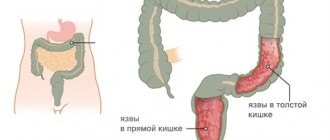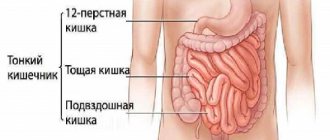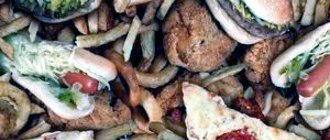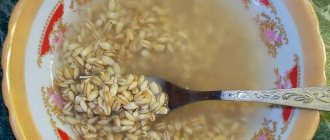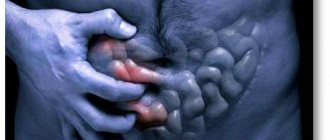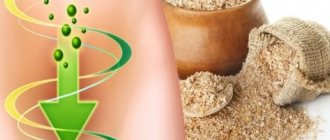To cleanse the intestines, it is important to eat foods rich in fiber.
The modern generation eats very irrationally. The diet of almost everyone on the planet is far from ideal. Sugary and processed foods are becoming cheaper and more accessible to us. It is much faster and cheaper to buy a chocolate bar than to prepare a tasty and healthy dish. Almost every one of us succumbs to this temptation. So it's no surprise that our generation is experiencing a surge in colon disease, driven by dietary trends. If you want to stay healthy and improve your quality of life, you should know that there are foods that help cleanse the intestines .
The Numerous Benefits of a Colon Cleanse
We have become accustomed to problems caused by poor intestinal health, and have even forgotten that this is where the health of the entire body is concentrated. If you include the right foods in your diet, you will effectively cleanse your intestines in a natural and completely safe way. The following are a wide range of benefits from a healthy gut: 1) Increased overall body energy; 2) Healthy intake of vitamins and minerals; 3) Increased levels of attention and concentration; 4) Promote healthy blood pH levels; 5) Assisting in weight loss; 6) Reducing the risk of colon cancer.
Colon cleansing products will help revitalize your body naturally and safely. Many unprocessed foods help cleanse the intestines. The article presents the most effective and useful products for cleansing the intestines, which also help cleanse the body of toxins and improve health.
Fiber-rich foods help cleanse the intestines
To cleanse the intestines, it is very important to eat foods rich in healthy dietary fiber - fiber. Scientists believe that to maintain a healthy body, every person should receive from 25 to 35 g of fiber daily from food. If your diet is low in fiber, you can supplement with psyllium seeds. Typically, this dietary supplement comes in powder or tablet form.
Raw fruits and vegetables protect the digestive tract
Many people are surprised to learn that the cure for their digestive problems can be found in the kitchen. Most fruits and vegetables are the best treatment for a number of diseases, including intestinal problems. These foods are high in dietary fiber and contain health-promoting compounds such as antioxidants, vitamins and minerals. Research shows that green vegetables rich in chlorophyll are especially effective at protecting the digestive tract.
Colon cleansing diet
A diet for cleansing the intestines and losing weight requires strict adherence to all conditions. There are express diets that last 1-3 days, and long-term ones - from 7 to 10 days.
Minimizing unhealthy, fatty and animal foods will help the body cleanse itself of toxins and rebuild the body to a balanced diet.
Colon cleansing products
The daily menu should include:
- bran;
- freshly squeezed juices;
- dairy products (cottage cheese, kefir, sour cream);
- salads from raw vegetables (lettuce, cabbage, celery, tomatoes, cucumber, greens);
- green apples;
- citrus fruits (orange, lemon, grapefruit);
- herbal infusions (chamomile, thyme, dandelion);
- rice, whole grain cereals.
Bran serves as a choleretic agent and normalizes stool. Also, this swollen fiber removes toxins, heavy metal salts, and cholesterol from the intestines. Vegetables and fruits have similar properties. Daily consumption of fiber improves immunity, improves the functioning of the gastrointestinal tract, and saturates cells with oxygen.
Freshly squeezed juices should only be consumed at home - store-bought packaged juices contain a lot of sugar and preservatives.
Below is an example of an express diet and a long course of cleansing.
3 day cleanse diet
The purpose of such a diet is to normalize the functioning of internal organs and detoxify the body.
1 day
- On an empty stomach - a glass of boiled water
- Breakfast - pearl barley porridge with bran - 250 g;
- Snack – green apple – 1 pc. and green tea;
- Lunch - beef with rice - 250 gr., cabbage salad with cucumber and herbs - 150 gr.;
- Snack – grapefruit – 1 pc.;
- Dinner - radish and herb salad with sour cream, black tea.
Day 2
- On an empty stomach - a glass of boiled water;
- Breakfast - 2 egg omelet, fresh cucumber, green tea;
- Snack - cottage cheese with sour cream, green bell pepper - 150 g;
- Lunch - vegetable lean soup, rice with vegetables;
- Snack - yoghurt with bran;
- Dinner - steamed fish, baked zucchini.
Day 3
- On an empty stomach - a glass of boiled water
- Breakfast - oatmeal on water with almonds - 250 g;
- Snack - cottage cheese casserole - 150 gr.;
- Lunch - beef pilaf with steamed rice, fresh salad - 250 gr.;
- Snack - green apple, yogurt;
- Dinner - salad of chicken fillet and lettuce with herbs and lemon juice.
It’s easier to call such a diet a fasting course. In 3 days you can lose up to 4.5 kilograms of weight, half of which is accumulated toxins. The menu can be changed at will, using products strictly from the list of permitted ones.
At the same time, an hour after eating, drink a glass of cool boiled water - this will speed up digestion and restore water balance in the body.
Diet to cleanse the colon in 10 days
This is the most optimal time interval for colon cleansing. The diet is based on eating foods rich in vitamin C, fiber and limiting carbohydrates.
A sample menu looks like this:
1-2 days
You are allowed to eat up to 2 kg. raw vegetables and fruits. Drink 2 liters of still boiled water per day. At night - a glass of kefir.
3-4 day
- On an empty stomach - a glass of cool water with a teaspoon of honey;
- Breakfast - whole grain porridge, steamed in the evening;
- Snack - any fruit from the list, a dairy product;
- Lunch - rice with vegetables, lean soup;
- Snack - a dairy product with bran;
- Dinner - steamed fish/meat, vegetable salad dressed with lemon juice.
5-6 day
- Drink a glass of cool water on an empty stomach;
- Breakfast - cottage cheese with nuts / protein omelet
- Snack - baked apples/grapefruit;
- Lunch - grilled chicken fillet/steamed fish, rice with vegetables;
- Snack - dairy product;
- Dinner - vegetable stew, omelet.
8-9 day
This is the stage of leaving the diet. The menu is similar to day 3-4. At the same time, you can season salads with cold-pressed olive oil.
10 day
Final day of the course. You can create your own menu based on your preferences. Use the products from the list.
In 10 days of such a diet, you can completely cleanse the body of harmful impurities. In addition, a large amount of consumed fiber saturates cells with oxygen and thins the blood.
The result is prevention of cardiovascular diseases, loss of up to 8 kg. weight, increased immunity.
In addition to a balanced diet, start your morning with a warm-up and breathing exercises. End the evening with a walk in the fresh air and a relaxing bath.
General rules
Enteritis is an inflammation of the small intestine with disruption of its function. The causes of this disease are numerous and have different etiologies. Acute enteritis is caused by bacteria, viruses, fungi, food allergens, medications, drugs (primarily NSAIDs and antibiotics ), radiation, or toxins .
A chronic disease is considered to be any long-term enteritis (infectious or immuno-allergic), which leads to a chronic inflammatory process in the intestines. Chronic inflammation of the small intestine occurs against the background of abnormalities in its development, errors in diet (rich, fatty, spicy, rough foods), bad habits, diseases of the blood, liver, kidneys, immune and endocrine systems, parasites, intestinal surgeries and abdominal injuries.
The clinical picture of enteritis is characterized by diarrhea and symptoms of malabsorption (disorder of digestion and absorption) in the chronic course of the disease. Acute enteritis occurs rapidly and is manifested by nausea, vomiting, severe abdominal pain, bloating and rumbling, and loose stools.
The severity of the disease is determined by the severity of the inflammatory process and endotoxicosis by bacterial toxins. Chronic enteritis is less acute and only during exacerbation does frequent watery stool appear after eating, bloating , and unexpressed pain in the umbilical region.
A correctly identified cause allows you to effectively treat the disease, restore the structure of the mucous membrane and achieve long-term remission in the chronic course of the disease. The patient's nutrition is of great importance in this regard.
The diet for enteritis accompanied by diarrhea should inhibit peristalsis. In this connection, products that enhance the secretory and motor functions of the intestines, promote fermentation and contain coarse fiber are excluded. These restrictions are prescribed until stool normalization. Subsequently, the range of products is gradually expanded. It is also recommended to use products rich in tannin (tea, decoctions and jelly from blueberries, quince, dogwood).
Products in composition and quantity must correspond to the ability to digest food. At any stage of the process, the principle of mechanical and chemical sparing is observed. In the acute period, hunger is prescribed. The patient should drink 1.5-2 liters of liquid (strong tea with lemon, decoction of rose hips and herbs). Then a food fasting is recommended, in which the daily volume of food is reduced by 15-50% of the requirement, depending on the severity of the process.
All these requirements are met by Treatment Table No. 4 , which is recommended for acute and chronic diseases during periods of severe diarrhea . Since its composition is not complete, therapeutic nutrition is prescribed for a short period of 3-4 days.
The main nutritional points are:
- Fractional diet with reduced portions.
- Cooking steamed and mashed dishes. All dishes should have a viscous consistency - slimy soups, jelly, well-cooked and pureed porridge.
- Exclusion of foods that enhance motility - bran bread, black bread, dried fruits, coarse fiber from vegetables and fruits, stringy meat, legumes, canned food, smoked foods, oatmeal, buckwheat and barley, which increase intestinal activity more than semolina and rice, beer, kvass, pickles, carbonated drinks, sweet dishes, fatty dishes, kumiss.
- Vegetables are completely excluded during this period (you can add their decoctions to soups).
Meals during the period of diarrhea include white bread croutons (no more than 200 g per day), soups in weak meat broth, to which mucous decoctions of cereals and pureed lean meat are added. Meat, fish and poultry are prepared in the form of souffles, cutlets and quenelles.
Allowed: semi-liquid rice and semolina porridge, steam omelette and all kinds of jelly (blueberry, quince, pear, blackcurrant and bird cherry). If well tolerated, pureed raw apples can be administered, taking into account the fact that they contain pectins .
As diarrhea decreases, a full-fledged Table No. 4B (mashed) is recommended, which can be performed for a long time until the stool is completely normalized. For chronic enteritis in the recovery stage and during the period of remission, Diet No. 4B , which differs from the previous one in that the dishes in it are not pureed. It is balanced (proteins up to 110 g, fats 90 g), less gentle and much more varied in composition.
Food is steamed or baked, it is not crushed, and porridges are prepared in crumbly form. The range of permitted vegetables has been significantly expanded: green peas, white cabbage (limited in boiled or stewed form), beets, green beans. You can eat fresh cucumbers, salads and fresh tomatoes. If the patient tolerates whole milk well, it is also included in the diet.
With all expansions in nutrition, the following is maintained:
- Five to six meals a day.
- Prohibition on the use of foods that enhance fermentation. These include legumes, kvass, black bread, bananas, grapes, and carbonated drinks. White cabbage can be consumed in limited quantities and with normal tolerance.
- Coarse vegetables and strong irritants to the mucous membrane (sorrel, radish mushrooms, radishes, celery, turnips) are not allowed.
With long-term chronic enteritis, the absorption processes of iron, Vitamin B12 , potassium, calcium, magnesium, protein, and folic acid . Patients develop B12-deficiency anemia , osteoporosis , weight loss, and hypovitaminosis .
Therefore, the patient’s nutrition must compensate for these disorders. In addition to the fact that nutrition should be complete and contain easily digestible proteins and fat-soluble vitamins A , D , K and E, Mezim Forte , Creon , Pancreatin is recommended to correct digestive and absorption functions . If there is a marked decrease in protein in the blood, the administration of amino acid . Enteral nutrition has a good effect ( Nutridrink , Nutren ).
In the presence of unstable stool, taking probiotics ( Enterol , Probifor , Bifistim , Polybacterin ) and food products enriched with lacto- and bifidobacteria .
If milk is poorly tolerated and to reduce flatulence a low-lactose diet is recommended. The degree of restriction of milk and dairy products varies from person to person. Some patients cannot tolerate milk, but can consume fermented milk products. Patients with mild hypolactasia (decreased amount of enzyme for digesting lactose ) can consume small amounts (100-150 ml per day) of whole milk. Restrictions are lifted when tolerance to dairy products improves.
Diet after colon cleansing
To maintain the achieved effect, perform a fasting day once a week. Use the list of products listed above. It is also useful to carry out a drinking fast: during the day, drink only freshly squeezed vegetable and fruit juices.
Don't stop adding bran to cereals and dairy products. This natural “broom” will remove impurities accumulated over 6 days without effort. Give preference to boiled, stewed meat - beef, chicken, rabbit, turkey.
Eliminate flour, fried and sweet foods. These gaps can be filled with grain bread, dried fruits, and grated fruits.
Colon cleansing diet - reviews
We interviewed several women using a colon cleansing diet. 90% of respondents noted improved gastrointestinal function, weight loss, and increased performance. 10% complained of malaise, dizziness, and weakness.
Let's list some of them.
Valentina, 25
Excellent May holidays with kebabs, pickles, pita bread ended with bloating and constipation. A friend suggested that we could “unload.” I can't stand porridge. I decided to sit on vegetables for a day. I was glad that 2 kg is possible. remember, otherwise she would have died of hunger. In the morning - a weight of 1.5 kg, the stomach has calmed down. I understand that I lost weight due to the release of water and “garbage,” but that was my goal. I will experiment once a week.
I decided to do the 7th cleanse. In the first 2 days I climbed the wall and looked into the refrigerator for sausage. I felt very dizzy and weak. The menu seems to be rich, but there was a strong desire for harmful things. It became easier on the 3rd day, when I woke up with a surge of energy and a great mood. I was surprised. The scale showed minus 3 kilograms, which made me even more happy. On the 7th day I began to love vegetables more than cakes. There are fewer acne spots on my face, my friends say that I look younger. Now I just stick to this diet. I also connected sports. And fast food is only “on holidays.”
I used a colon cleansing diet to lose weight. In 10 days I lost 8 kg. But at the same time, the menstrual cycle was disrupted. All these diets are stressful for the body. Although, the food list does not prohibit anything like this, it seems that there are both fats and proteins. But all the same... The body is apparently accustomed to all sorts of “nasties” and it rejects paragraphs. But once a week I eat apples and kefir. Purely for minimal unloading.
For normal bowel function, your diet should be rich in organic, plant-based foods that are rich in fiber and nutrients. Drink more water, exercise and don't stress. This concludes the article. Tell your friends about us, share the link on social networks.
The large intestine cannot be classified as a glamorous part of our body, but the health of the entire body depends on it. It is the main one of the key “pipelines” in the waste elimination system and, if the slightest malfunction occurs in its operation, you need to urgently think about how to cleanse the intestines of toxins and protect yourself from diseases.
Infectious diseases of the kidney and urinary systems, constipation, fungal infections of the genitals and nails, unpleasant odor from the mouth and skin surface, spasmodic phenomena in the abdomen, as a rule, signal existing problems of the excretory tract. Very often, diseases of the body begin with functional disorders of these organs. This is not at all harmless, since colon cancer is one of the top three cancers, and the mortality rate from it is even higher. The large intestine is a real processing “station”, an entire system for managing the removal of waste, unnecessary substances, and toxins. A clean, healthy colon clearly copes with its tasks and effectively cleanses the body, while a colon clogged with waste, on the contrary, pollutes it, as it allows toxins to be absorbed back into the blood and liver. All unnecessary residues must be eliminated from the body as quickly as possible (from 6 to 18 hours), otherwise bacteria and microorganisms will begin to multiply, which will inevitably lead to the development of diseases.
To keep your colon healthy and well cleansed, you need to eat the right foods. You don't need to choose a special diet for this. Just add to your diet something that helps to constantly increase intestinal motility and perform functions to cleanse the body.
Diet to cleanse the body
Diets for cleansing the body are compiled individually, but the list of products for the daily diet that accelerate cleansing of the body is the same:
1. Apples. Pectin, which is contained in apples, helps the body eliminate heavy metals. In addition, apple juice is effective in fighting viruses and supports proper liver function.
2. Beetroot . Boiled, baked, stewed and raw, beets in any form are an indispensable assistant to the liver in cleansing the body. This vegetable naturally removes toxins from the liver, allowing it to work at full capacity while cleansing the body.
3. Celery. Purifying the blood, preventing the deposition of uric acid in the joints and facilitating the functioning of the kidneys are beneficial properties necessary for cleansing the body.
4. Onion. Helps remove toxins through the skin.
5. Cabbage. Thanks to sulforaphane, contained in cruciferous vegetables, it removes toxins from the body, the high content of sulfur, iodine and chlorine form compounds that cleanse the intestines, and organic acids prevent the formation of fats from sugar and carbohydrates.
6. Garlic. Removes nicotine from the body, cleanses the circulatory system and respiratory tract.
7. Artichoke. Contains antioxidants and fiber.
8. Lemon. Vitamin C cleanses blood vessels and prevents the deposition of salts in the kidneys. Lemon juice is used as a dressing for unleavened salads, and water with lemon quenches thirst.
9. Ginger. The anti-cold properties of this plant are associated with its diaphoretic effect, due to which it removes toxins from the body through the skin.
10. Green tea. A source of antioxidants, it rids the body of excess fluid and stimulates liver function.
11. Olive oil. Cold-pressed oil improves the functioning of the heart and circulatory system, and is a choleretic agent. Before meals, regularly eat five to six olives or black olives.
12. Water. Still mineral, boiled, filtered. Ensure that your body gets at least one and a half liters of water every day. In addition to plain water, drink herbal teas, natural juices, and cleansing tinctures.
During the diet to cleanse the body, it is prohibited to consume:
1. Smoked products;
2. Fatty meats;
3. Pasta;
4. Sugar and sweets;
5. Alcoholic drinks;
6. Full-fat whole milk and cottage cheese.
During the diet, use beef or chicken instead of pork, replace pasta with cereals, and replace sugar with a sweetener. Instead of fatty cottage cheese and yoghurts with additives, buy natural low-fat fermented milk products.
It is recommended to use olive oil, for example, in salad dressings, and for flour products, stick to whole grain bread.
How to cleanse the intestines of toxins using natural products?
Cellulose
In order for the body to be healthy and function properly, it is necessary to include foods containing a lot of fiber in your diet. It performs the role of a “good broom” perfectly, increasing the number of wave-like movements, thereby reducing the time it takes for waste to pass through. Fiber also helps retain moisture in the intestinal tissues, which significantly softens the excreted masses. Naturally rich in fiber are vegetables and fruits, legumes, seeds and nuts, and whole grain products. Cellular fibers are not absorbed by the body and may or may not dissolve in water. The body needs both. Fiber with soluble properties is good for preventing constipation. It helps to increase beneficial bacteria of an antibiotic nature, which suppress pathogenic formations and microorganisms in the intestines. In addition, it helps cleanse blood vessels from harmful cholesterol and allow nutrients to pass freely through them. Healthy intestinal flora can prevent cancer in the colon area.
Natural foods with fiber
Topping this list is flaxseed, which contains the highest amount of soluble and insoluble fiber. For an adult, the fiber requirement per day is approximately 25 grams. To get this amount of healthy fiber, it is enough to eat up to four tablespoons of flaxseed per day. You can replace flaxseed in your diet with legumes - beans, peas, as well as barley, strawberries, apples, citrus fruits, rice, which are also found to have a high fiber content.
There is a lot of insoluble fiber in brown rice, cabbage, beets, turnips, carrots, wheat, rye, Brussels sprouts, peeled apples, etc.
For uninterrupted good bowel function, it is recommended to consume up to 35 grams of fiber per day. Our normal diet gives us only 10 grams. To increase your intake of soluble and insoluble fiber, you should consume at least five servings of vegetables and fruits or more than six servings of whole grains daily. One serving of grain products is equal to a slice of bread or half a cup of cooked cereal.
Green plants and algae
Foods containing chlorophyll
Green foods rich in chlorophyll are an ideal natural remedy for colon cleansing. Such products are alfalfa, spirulina, blue-green algae, wheatgrass, barley, herbs, which not only soothe the tissue surface of the stomach and intestines, but also promote its rapid healing. They cleanse the body of toxins and help get more needed oxygen. It is for this reason that chlorophyll is often called an internal deodorant.
Dairy products
If you are accustomed to foods that contain more refined carbohydrates and insufficient amounts of fiber, the balance of the intestinal ecosystem will definitely be upset. To correct the situation, it is recommended to consume fermented milk products such as yogurt, kefir, fermented baked milk. They are able to fight entire colonies of harmful microorganisms, displace less beneficial bacteria from the intestinal flora, have a positive effect on strengthening the immune system and promote the production of fatty acids, which are a source of energy for colon cells.
Pure water
Everyone who cares about their health knows about the need to drink a lot of water every day, since water removes waste, toxins and is the best solvent. Insufficient drinking regime always leads to disruption of body functions and is the cause of many diseases. You need to drink a lot, up to 10 glasses a day. Preferably between meals or 20-30 minutes before them. Tea and coffee - don't count them. Pure water can only be replaced with herbal infusions or undiluted fruit juices. Drink whenever you feel thirsty. Water helps cleanse the intestines, keeps tissues clean and leads to good health.
Aloe
This is one of the few plants that helps to effectively cleanse the body of waste and toxins. By drinking at least 2 tablespoons of juice daily (morning and evening), you can cleanse your entire body, the entire vascular system and all organs. You can start drinking with a teaspoon, gradually increasing the dose to a tablespoon. To enhance the effect, Aloe juice can be diluted with water, adding honey and lemon juice.
To help the body process food and eliminate unnecessary substances, eat organic foods, avoid stress, and be sure to exercise. By taking care every day to cleanse your intestines of toxins, you help reduce the load on your liver and kidneys and take care of the smooth functioning of your entire body. This approach will ensure optimal health and well-being for many years to come.
A large number of products that we eat every day are suppliers of not only vitamins and microelements, they can also help the body get rid of all the harmful and unnecessary substances that accumulate in the body every day. Before moving on to the products, first let's figure out why toxins accumulate?
Why do toxins accumulate in the human body?
There is no person in the world whose body does not accumulate toxins. Over time, the products of metabolic processes that occur in the body accumulate and begin to poison the body with their presence.
Main reasons for accumulation:
- weak immunity, for example after illness;
- avitaminosis;
- eating foods that are difficult for the stomach (various additives, dyes, fatty meats, fast food);
- diets;
- passive lifestyle;
- frequent constipation.
Our body is capable of ridding itself of harmful substances. This function is performed by the intestines, kidneys, liver, as well as the lymphatic system and skin. But, unfortunately, they can only remove natural excesses, using natural methods of removal. But our bodies are unable to cope with many flavors, dyes, antibiotics, additives and other chemical components. Therefore, it is necessary to consume some foods that help cleanse the intestines of harmful organisms.
10 foods that cleanse your colon
1) Lemon.
There is probably no better product when it comes to removing harmful substances from the body. It destroys almost all toxins that clog our body. Lemon contains a lot of potassium and vitamin C, which prevents cancer and reduces the amount of cholesterol in the blood and improves immunity.
2) Carrots.
Carrots also contain potassium, which helps cleanse the kidneys and also improves the functioning of the intestinal tract. In addition, it helps to get a beautiful tan, so you can safely treat yourself to freshly squeezed juice.
3) Artichoke.
We need artichoke to cleanse the liver. Due to the fact that it contains potassium, it is often used as a strong diuretic that removes excess toxins from the body.
4) Pineapple.
Pineapple contains vitamins C, A, B, which are needed by the body during vitamin deficiency. This fruit is needed to remove toxins and fats, which help improve the functioning of the digestive system and remove cholesterol from the blood. In order to feel the cleansing effect, eat 2 pineapple slices on an empty stomach.
5) Beets.
Beets contain a lot of fiber, which has a beneficial effect on the body and cleanses the intestines. Also, thanks to pectin, which is abundant in beets, harmful substances are removed from the body.
6) Kiwi.
This product contains many antioxidants; kiwi also has a good effect on cleansing the intestinal tract, it breaks down fats and improves the general condition of the body.
7) Apple.
In order to remove gluten, which is part of food, from the human body, you need to eat an apple. It contains fiber, which cleanses the body and prepares the intestinal flora for proper digestion of healthy vegetable and fruit dishes.


Garlic removes harmful toxins from the body, cleanses blood vessels and makes them more elastic. It is also needed to dissolve cholesterol plaques and remove salt deposits, and is also an excellent antiviral and antimicrobial agent, which increases the strength of the immune system.
9) Cabbage.
Cabbage, surprisingly, contains a lot of vitamin C, almost as much as an orange. All types of cabbage (broccoli, Chinese, sauerkraut) help the liver get rid of excess toxins.
10) Grapefruit.
Grapefruit is a very well-known dietary product, and it is also irreplaceable when it comes to the desire to cleanse the body of toxins. It significantly reduces the level of insulin and cholesterol in human blood.
Most people today no longer need special scientific evidence to understand that our well-being, mood and appearance are directly related to our health, and intestinal health plays a key role here. It is the intestines that continuously work to ensure that useful and nutritious substances from food enter the bloodstream: there is no need to explain why “we are what we eat” - now people are well aware of this.
Since this topic is very important for health, we decided to dedicate today’s material to it and talk about which foods are good for the intestines, which foods cleanse and weaken the intestines.
Menu (Power Mode)
The patient’s diet is quite varied, and since the composition is balanced, it can be followed for a long time. The list of protein dishes from beef, chicken, turkey, fish, cottage cheese is varied and they provide a long-lasting feeling of fullness. If patients tolerate milk, then breakfast can consist of a variety of milk porridges and egg dishes.
Cottage cheese diversifies the menu and gives a feeling of fullness
The therapeutic nutrition of this table is balanced and varied. These points allow patients with chronic intestinal diseases to constantly adhere to it. For many, this is a necessity, since dietary nutrition has a positive effect on the condition of the gastrointestinal tract. Minor deviations from it cause deterioration in health.
| Breakfast |
|
| Lunch |
|
| Dinner |
|
| Afternoon snack |
|
| Dinner |
|
| For the night |
|
| Breakfast |
|
| Lunch |
|
| Dinner |
|
| Afternoon snack |
|
| Dinner |
|
| For the night |
|
| Breakfast |
|
| Lunch |
|
| Dinner |
|
| Afternoon snack |
|
| Dinner |
|
| For the night |
|
Why Gut Health Is Important
Unfortunately, awareness of something does not mean that we know about it: knowledge is based on experience, and most people, although they understand theoretically that food should not be all in a row, and food should be healthy and useful, in practice behave completely differently. Using the excuse of a lack of time and the inability to resist taste preferences, we load our bodies with heavy foods, with lots of sugar, fat, salt, spicy seasonings and harmful “E-shakes”, and then grab onto cleansing diets - at best.
Benefits of a cleansing diet
Adherents of such diets, and even experts, claim that periodic cleansing helps rid the body of toxins, fats, salts and toxins that accumulate as a result of poor nutrition. Any cleansing diet is based on eating fiber-containing foods - raw vegetables, freshly squeezed juices and fruits.
Thanks to this nutrition, the functioning of the intestines and liver is restored, blood circulation improves, and blood vessels and skin are cleansed. Short-term avoidance of unhealthy foods such as sugar, coffee, fats and alcohol can help improve your well-being and inspire you to change your diet and lifestyle.
The diet promotes skin regeneration, smoothing wrinkles, normalizing skin fat metabolism, eliminating rashes and blemishes. Also, a properly structured diet can remove from the body excess mucus accumulated over years of life, which is localized on the esophagus and respiratory organs.
There are many effective techniques that you can carry out independently at home, but do not forget that comprehensive cleansing of the body requires prior consultation with your doctor.
What exactly is harmful?
The worst option is to “sit down” on tablets like “Mezima”, and think that you can eat whatever you want: with the tablet, the stomach will “digest a horseshoe”, and the intestines will assimilate everything.
Often people with normal digestion use such “gastrointestinal” drugs, intended for temporary use - when moving and traveling, after operations or before examination - almost constantly, and get constipation and diarrhea, allergies and other “achievements”, and then They criticize doctors and advertising.
But you can maintain intestinal health quite easily by regularly including certain types of foods with a cleansing and laxative effect in your diet. So we come to the main question - what foods are good for the intestines?
Contraindications
Before you start cleansing the intestines, you need to consult a doctor so that the fasting diet does not harm your health. The cleansing process may be contraindicated in case of illness:
- diabetes mellitus (insulin dependence);
- diarrhea, appendicitis;
- stomach ulcer;
- second trimester of pregnancy and lactation;
- colitis, enterocolitis;
- serious illnesses: cancer of various stages, tuberculosis;
- neurological and mental disorders.
Fasting days are very helpful for effective weight loss. Before you start losing weight, you need to cleanse your colon, liver and continue to eat right. After some time, lightness will appear and the overall well-being of the body will improve.
Colon cleansing products
In order for nutrients to be better absorbed, the intestines must be free. To do this, you regularly need to eat foods that cleanse the intestines.
Now let's move on to the list of the most useful products that are publicly available and can be easily purchased in any store. So... It is known that foods rich in fiber cleanse the intestines best, and first of all, these are almost all raw vegetables and fruits. They are rich not only in dietary fiber, but also in vitamins, minerals and other beneficial compounds.
Green vegetables and fruits are especially “strong” in cleansing the intestines, but it is impossible to describe the effect of all of them here.
Let's remember some - for example, cabbage of all types. You can eat it raw - in salads, stew, steam, or eat sauerkraut: it cleanses the intestines very well, helps with chronic constipation, and also feeds healthy intestinal flora. You should not eat too large portions of cabbage, especially raw cabbage, as this can cause bloating and flatulence.
Green salad of all types is also an excellent product for cleansing the intestines: it quickly improves digestion, and its calorie content is negligible - about 17 kcal. You should try to eat it without salt, pouring freshly squeezed lemon juice on it - the effect will be wonderful.
Green apples are very rich in fiber and pectin, and perfectly cleanse the intestines even of long-term deposits: the most persistent constipation subsides, digestion returns to normal, and well-being and mood noticeably improve.
Other fruits that are good for the intestines include pineapple and grapefruit. Fresh (not canned) pineapple cleanses the intestines without strain - especially the colon: you can eat it plain, or prepare fruit salads with it - for example, adding apples, plums and tangerines, pouring lemon juice over everything.
Grapefruit is especially useful for high cholesterol: it will cleanse the intestines and normalize the level of triglycerides in the blood. And fresh grapefruit juice can be mixed with carrot juice, and honey and mineral water can be added - this drink is useful on an empty stomach. In general, any freshly squeezed juices with pulp are useful, but it is better to choose less sweet ones or drink them mixed with the juices of unsweetened fruits and vegetables.
Intestinal products such as beets and carrots are recognized helpers in the fight against constipation: they cleanse not only the intestines, but also the kidneys and liver, which means the blood is also cleansed. It is better to eat beets boiled, and grate carrots on a fine grater.
Legumes are also rich in fiber that is beneficial for the intestines, but even here it is better to choose everything green: peas, beans, beans, lentils - mature legumes have a lot of starch.
Whole grain cereals, if prepared correctly, provide a gentle and effective cleansing of the intestines. Of the cereals, millet, barley, oatmeal and buckwheat are the richest in fiber, but whole grain bread will also be good - rye and durum wheat contain about 15 and 10% fiber, respectively.
There is a lot of fiber that is beneficial for the intestines in dried fruits, flaxseeds, other seeds and nuts, bran and fresh berries, especially in cherries and currants - black and red.
Foods called probiotics and prebiotics effectively cleanse the intestines and increase healthy microflora. This is natural “fermented milk” (yogurt, kefir, etc.), kombucha, sauerkraut, corn flakes, onions, garlic, bananas, field chicory, etc.
Separately, we can say about inulin - a polysaccharide contained in many plants, very useful for intestinal flora. Artichoke tubers are especially rich in it, but in our country it is easier to pay attention to Jerusalem artichoke - a tuberous plant of the same family, which has twice the nutritional value of many vegetables.
Special mention must also be made about garlic: it is considered a superfood for cleansing the intestines, but not everyone likes to eat it, and the smell is not so easy to eliminate. It is not necessary to chop or chew the garlic: you can swallow it without chewing while eating, but not whole - it can easily get stuck in the throat - but by cutting it into small pieces.
Foods rich in fatty acids contribute to cleansing the intestines: many vegetable oils, nuts and seeds, fatty sea fish, seafood. From their regular use, the intestines seem to be lubricated from the inside - this promotes the rapid elimination of toxins and accumulated deposits.
Authorized Products
The diet for inflammation of the small intestine during the recovery period includes:
- Soups with weak broth. The cereals in them (exclude millet, barley, pearl barley, corn, as they are difficult to digest) are well boiled, kneaded, and the permitted vegetables are finely chopped.
- It is allowed to eat soups with potatoes, carrots, cauliflower or zucchini. During the period of stable remission, white cabbage, young peas, green beans and even beets are gradually introduced. Soups are prepared with the addition of meatballs or boiled minced meat.
- Porridge: buckwheat, rice, oatmeal. Prepared in water; broth can be used if desired. It is possible to prepare porridges with the addition of milk. In addition to porridge, vermicelli, thin noodles and medium-sized pasta can serve as side dishes. Puddings or casseroles are also prepared from permitted cereals.
- Low-fat varieties of meat, poultry, and fish, which are served in the form of cutlets and quenelles, and the patient can eat tender types of poultry and fish in pieces.
- Vegetables (potatoes, carrots, cauliflower and Brussels sprouts, zucchini) are used to prepare stewed and boiled side dishes, cutlets and stews. In fresh form, the patient can eat ripe tomatoes and cucumbers without skin, leaf salads, fresh parsley as part of salads and first courses.
- Dried wheat bread, dry biscuits, crackers, vanilla crackers or low-fat sponge cake are allowed.
- Among dairy products, the main place is occupied by fermented milk products and freshly prepared cottage cheese, from which casseroles, puddings and other dishes are also prepared.
- You can introduce mild cheese into your diet, add milk and cream to various dishes and drink whole milk if this does not cause loose stools. Butter is served with bread and as part of dishes.
- Vegetable oils are temporarily excluded due to the possibility of diarrhea.
- Eggs you can eat 2 pcs. daily prepared in the form of omelettes.
- Appetizers that are well tolerated include sturgeon caviar, jellied fish, soaked herring, and boiled tongue.
- Ripe fruits (apples, pears), which should be eaten without peeling. Strawberries and raspberries are allowed in their raw form, but melon, watermelon, peaches, apricots, cherry plums, and plums are not allowed. Jelly, compotes, decoctions, jellies are prepared from fruits; apples and pears can be baked. The use of natural marshmallows, jam and jam is allowed.
- Drinks include tea, weak coffee, cocoa prepared with water, rosehip decoction and various juices - you can drink any (excluding grape, plum, apricot and cabbage) in a diluted form.
Table of permitted products
| Proteins, g | Fats, g | Carbohydrates, g | Calories, kcal | |
Vegetables and greens | ||||
| zucchini | 0,6 | 0,3 | 4,6 | 24 |
| cauliflower | 2,5 | 0,3 | 5,4 | 30 |
| potato | 2,0 | 0,4 | 18,1 | 80 |
| carrot | 1,3 | 0,1 | 6,9 | 32 |
Fruits | ||||
| quince | 0,6 | 0,5 | 9,8 | 40 |
| pomegranate | 0,9 | 0,0 | 13,9 | 52 |
| pears | 0,4 | 0,3 | 10,9 | 42 |
| dogwood | 1,0 | 0,0 | 10,5 | 44 |
| apples | 0,4 | 0,4 | 9,8 | 47 |
Berries | ||||
| blueberry | 1,1 | 0,4 | 7,6 | 44 |
Nuts and dried fruits | ||||
| dried pears | 2,3 | 0,6 | 62,6 | 249 |
Cereals and porridges | ||||
| buckwheat (kernel) | 12,6 | 3,3 | 62,1 | 313 |
| semolina | 10,3 | 1,0 | 73,3 | 328 |
| oat groats | 12,3 | 6,1 | 59,5 | 342 |
| cereals | 11,9 | 7,2 | 69,3 | 366 |
| white rice | 6,7 | 0,7 | 78,9 | 344 |
Bakery products | ||||
| white bread crackers | 11,2 | 1,4 | 72,2 | 331 |
Confectionery | ||||
| jam | 0,3 | 0,2 | 63,0 | 263 |
| jam | 0,3 | 0,1 | 56,0 | 238 |
| marshmallows | 0,8 | 0,0 | 78,5 | 304 |
| fruit and berry marmalade | 0,4 | 0,0 | 76,6 | 293 |
| meringues | 2,6 | 20,8 | 60,5 | 440 |
| paste | 0,5 | 0,0 | 80,8 | 310 |
| Maria cookies | 8,7 | 8,8 | 70,9 | 400 |
Raw materials and seasonings | ||||
| dried bird cherry | 8,4 | 0,0 | 16,8 | 101 |
Dairy | ||||
| skim milk | 2,0 | 0,1 | 4,8 | 31 |
| sour cream | 2,8 | 20,0 | 3,2 | 206 |
| acidophilus | 2,8 | 3,2 | 3,8 | 57 |
Cheeses and cottage cheese | ||||
| cheese | 24,1 | 29,5 | 0,3 | 363 |
| cottage cheese 0.6% (low fat) | 18,0 | 0,6 | 1,8 | 88 |
Meat products | ||||
| boiled beef | 25,8 | 16,8 | 0,0 | 254 |
| boiled veal | 30,7 | 0,9 | 0,0 | 131 |
| rabbit | 21,0 | 8,0 | 0,0 | 156 |
Bird | ||||
| boiled chicken | 25,2 | 7,4 | 0,0 | 170 |
| turkey | 19,2 | 0,7 | 0,0 | 84 |
Fish and seafood | ||||
| Red caviar | 32,0 | 15,0 | 0,0 | 263 |
| black caviar | 28,0 | 9,7 | 0,0 | 203 |
Oils and fats | ||||
| butter | 0,5 | 82,5 | 0,8 | 748 |
Non-alcoholic drinks | ||||
| mineral water | 0,0 | 0,0 | 0,0 | — |
| green tea | 0,0 | 0,0 | 0,0 | — |
| black tea | 20,0 | 5,1 | 6,9 | 152 |
Juices and compotes | ||||
| Orange juice | 0,9 | 0,2 | 8,1 | 36 |
| Cherry juice | 0,7 | 0,0 | 10,2 | 47 |
| Strawberry juice | 0,6 | 0,4 | 7,0 | 31 |
| tangerine juice | 0,8 | 0,3 | 8,1 | 36 |
| Apple juice | 0,4 | 0,4 | 9,8 | 42 |
| * data is per 100 g of product | ||||
What foods weaken the intestines?
In general, many of the foods listed above weaken the intestines - in particular, dried fruits: prunes, dried apricots, figs, raisins. They need to be poured with boiling water or clean water, infused and eaten, and the infusion should be drunk. Fresh berries include cherries and strawberries; fruits – apricots.
Only fresh, one-day “sour milk” weakens the intestines: already on the 2nd day it is better not to count on it, and on the 3rd you can get constipated.
Vegetable oils weaken the intestines if they are not heated and poured over salads and snacks; oil in prepared dishes, and especially fried ones, will not bring any benefit in this sense.
In addition to beets, the following have an excellent laxative effect on the intestines: pumpkin - it can be eaten raw, baked, steamed; tomatoes – they are also rich in the antioxidant lycopene; zucchini - raw young fruits quickly relieve constipation; spinach and other leafy vegetables; edible herbs - such as dandelion and alfalfa; ginger - it is added to salads and tea is made with it; seaweed; melon - it should be eaten on an empty stomach or replaced with any meal.
Dark chocolate is also an excellent product that weakens the intestines. This does not mean that you can choose any bar labeled “bitter chocolate”: only pure chocolate, without additives or sugar, has the necessary effect - it costs several times more than the usual delicacy.
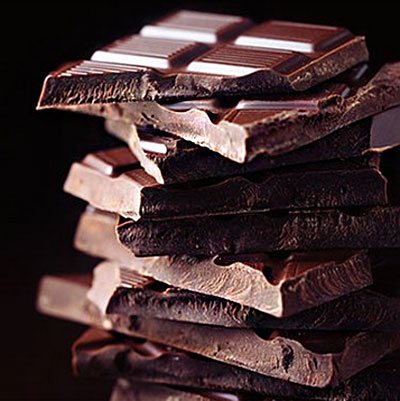
It is impossible to relax and cleanse the intestines without ordinary clean water - you need to drink up to 2 liters of it per day. Alcohol, black tea and coffee (although it is considered to be slightly debilitating) dehydrate the body and interfere with the intestines.
Include as many of the foods listed here in your diet as possible, and you will not only get a healthy intestine without enemas and laxatives, but also get rid of many chronic diseases.
There are a variety of recipes for colon cleansing. And this is not surprising, because since ancient times, cleansing the intestines has been considered one of the best ways to prevent all diseases.
A variety of substances are absorbed from the intestines into the body. It all depends on what is in the intestines. If you eat right and regularly cleanse your intestines, vitamins and other beneficial substances will be absorbed and you will feel cheerful and light.
And if you eat a lot of preservatives, fatty, heavy foods, drink alcohol and do not cleanse your intestines, then fecal stones, mucus, and mold will accumulate there. The intestines will not function at full strength and everything will rot inside you. In the intestine, which is three meters long, up to 25 kilograms of fecal stones can accumulate. So cleansing your colon is a top priority if you want to live a healthy, long life.
General recommendations on diet to cleanse the body
To cleanse your body correctly and ensure immediate results, follow these additional recommendations:
1. Move dinner closer to the middle of the day or refuse it. It is important to go to bed with an empty stomach, so that at night the body does not spend energy on digestion, but uses it to cleanse itself of accumulated harmful substances.
2. Drink plenty of fluids. Rosehip tinctures, natural juices, herbal teas cleanse the body.
3. Avoid alcohol, coffee and teas containing caffeine.
4. Do not start a diet at the same time as taking medications.
5. Play sports, walk in the fresh air and get at least 7 hours of sleep every day.
6. Eat fruits and vegetables daily;
7. Additionally, take echinacea for vigor and improved well-being.
8. Eat only when you feel hungry;
9. Include raw plant foods in your diet;
10. Fermented milk products should be consumed at least once a day;
11. Minimize your intake of complex fats, sugars and salt.
12. Eat a small amount of seaweed or other seaweed daily.
13. Avoid foods containing chemical additives.
14. Vitamin-mineral complexes are selected in addition to the diet if it is impossible to ensure the natural supply of certain vitamins and minerals. Additives are used according to the attached instructions.
Homemade Colon Cleansing Recipes
The first recipe. Colon cleansing products
Products for cleansing the intestines are any greens, vegetables and fruits. Porridge also cleanses the intestines well. Here we will look at two of the best recipes for colon cleansing.
"Salad-broom"
- cabbage, carrots and beets, raw, grate and chop in a ratio of 3:1:1. You can add a little salt and mash until juice is obtained. Do not give oil. Eat in the morning, on an empty stomach. Preferably daily.
Porridge:
Take equal parts rice and oatmeal to make a glass of the mixture, pour in 2.5 cups of boiling water and cook until thickened. Eat without salt, sugar or any additives. It is also advisable to do it every day. Porridge removes foreign objects from the intestines. It's better to choose one way.
The second recipe. Epsom salts for colon cleansing
Epsom salt is magnesium sulfate or magnesium.
It removes toxins from the intestines very well and at the same time cleanses the lymph and blood of toxins. It is very good to take when losing weight, because there are a lot of toxins in fat, the fat goes away, but the toxins remain, so you need to use Epsom salt for.
The crystals must be dissolved in water in a 1:1 ratio. It should be taken on an empty stomach at night or half an hour before meals. For adults, the dose is 10-30 g in half a glass of water, and for children, magnesium is taken at the rate of 1 g per one year of life. It's like a mild laxative. If you need a harsher action, then an enema is done from 100 ml of a 20-30% magnesium solution.
Recipe three. Colon cleansing tea
Colon cleansing tea consists of rowan, rosehip, jasmine and raspberry leaves. All this must be taken in equal proportions and brewed. What is especially useful about this tea is that you can cleanse the intestines without changing your usual daily routine.
You can also simply drink at least 10 cups of green tea a day. This will also flush out the intestines.
Recipe four. Colon cleansing with kefir
Colon cleansing with kefir is carried out over three days. This is a simple way to remove long-term deposits of toxins from the body. You cannot eat anything other than what is expressly indicated. Drink kefir, and not any other fermented milk product.
Day 1.
Do an enema on an empty stomach in the morning.
Drink kefir all day (from one and a half to three liters) and eat black bread crackers. Day 2.
In the morning, do an enema on an empty stomach.
Drink freshly squeezed vegetable juices all day long. There is nothing else to eat. Day 3.
You can have a light breakfast of vegetables and fruits. Throughout the day you can eat everything except bread, meat, salted, fried, spicy, smoked and floury. Eat in small portions, stick to separate meals. It is better to carry out such cleaning once a month.
Recipe five. Colon cleansing with hay
Colon cleansing with hay is quite a powerful remedy. It must be used carefully, monitoring your condition so that you have 1-2 relaxed bowel movements per day. Can only be performed by adults. The cleansing course lasts one week.
Senna should be taken in the evening before bed, two hours after meals. Boil one tablespoon of senna in a glass of water for five minutes. Then leave for five minutes and drink 1/3 glass. After that there is nothing left to eat.
Recipe six. Colon cleansing with activated charcoal
Colon cleansing with activated carbon is carried out within a week. Activated carbon is very good at removing not only toxins and waste from the body, but also useful substances, so you need to eat well. Tablets are taken at the rate of one tablet per 20 kg of weight. You cannot simply cleanse with activated carbon; it must be done in combination with some other means.
Recipe seven. Colon cleansing with oats
It will take a week to cleanse the intestines with oats. 200 g of oats are boiled for 40 minutes with 2 liters of water with constant stirring. You should take half a glass of the decoction 4-5 times a day.
Recipe eight. Colon cleansing with bran.
Colon cleansing with bran should be done three times a day before meals (15 minutes). You just need to eat 1-2 tablespoons of bran, always washing it down with mineral water.
If cleansing the intestines with the products we described above does not suit you, then there are several more quite labor-intensive methods.
Here we will only mention them, because each of them has so many instructions and nuances that it is impossible to present them here.
Exercises to cleanse the intestines are best used together with
, otherwise they will not give the desired result and you will simply use the complex in vain.
There is another set of exercises - yoga cleanses the intestines simply amazingly,
but you must adhere to all the rules of this complex, because everything there is based on balance and pre-letter execution.
There is also Ayurvedic colon cleansing
. This is a cleansing of the body with leeches. It also requires preparation, such as an enema, before use. According to adherents of this method, leeches draw out all toxins from the body.
Fully or partially limited products
- Strong and fatty broths, fatty meats, canned food, fatty sauces, and smoked foods are excluded.
- Products that irritate the gastrointestinal mucosa - garlic, celery, green onions, garlic, onions without heat treatment, radishes, radishes, turnips and enhance fermentation - legumes, beer, rye bread, fresh baked goods, kvass.
- You should not eat legume soups, cold first courses (okroshka, kholodnik) and limit the consumption of borscht and rassolnik.
- Do not use cooking oil, animal fats, vegetable oil, corn, millet, pearl barley and barley.
- Avoid spicy foods, large quantities of spices, mustard, horseradish, chili pepper.
- It is not allowed to consume chocolate, ice cream, pastries, cakes, carbonated drinks, kvass, and sour fruit drinks.
Table of prohibited products
| Proteins, g | Fats, g | Carbohydrates, g | Calories, kcal | |
Vegetables and greens | ||||
| vegetables legumes | 9,1 | 1,6 | 27,0 | 168 |
| swede | 1,2 | 0,1 | 7,7 | 37 |
| cabbage | 1,8 | 0,1 | 4,7 | 27 |
| cucumbers | 0,8 | 0,1 | 2,8 | 15 |
| parsnip | 1,4 | 0,5 | 9,2 | 47 |
| parsley (root) | 1,5 | 0,6 | 10,1 | 49 |
| radish | 1,2 | 0,1 | 3,4 | 19 |
| white radish | 1,4 | 0,0 | 4,1 | 21 |
| turnip | 1,5 | 0,1 | 6,2 | 30 |
| beet | 1,5 | 0,1 | 8,8 | 40 |
| celery | 0,9 | 0,1 | 2,1 | 12 |
| horseradish | 3,2 | 0,4 | 10,5 | 56 |
| garlic | 6,5 | 0,5 | 29,9 | 143 |
| spinach | 2,9 | 0,3 | 2,0 | 22 |
| sorrel | 1,5 | 0,3 | 2,9 | 19 |
Fruits | ||||
| bananas | 1,5 | 0,2 | 21,8 | 95 |
| melon | 0,6 | 0,3 | 7,4 | 33 |
Berries | ||||
| grape | 0,6 | 0,2 | 16,8 | 65 |
Mushrooms | ||||
| mushrooms | 3,5 | 2,0 | 2,5 | 30 |
Nuts and dried fruits | ||||
| dried fruits | 2,3 | 0,6 | 68,2 | 286 |
Cereals and porridges | ||||
| pearl barley | 9,3 | 1,1 | 73,7 | 320 |
| Wheat groats | 11,5 | 1,3 | 62,0 | 316 |
| millet cereal | 11,5 | 3,3 | 69,3 | 348 |
| barley grits | 10,4 | 1,3 | 66,3 | 324 |
Flour and pasta | ||||
| pasta | 10,4 | 1,1 | 69,7 | 337 |
Bakery products | ||||
| vysivkovy bread | 9,0 | 2,2 | 36,0 | 217 |
| Old Russian grain bread | 9,6 | 2,7 | 47,1 | 252 |
| Rye bread | 6,6 | 1,2 | 34,2 | 165 |
Confectionery | ||||
| candies | 4,3 | 19,8 | 67,5 | 453 |
| cookie | 7,5 | 11,8 | 74,9 | 417 |
| Kurabye cookies | 6,7 | 25,8 | 64,6 | 516 |
| butter cookies | 10,4 | 5,2 | 76,8 | 458 |
Ice cream | ||||
| ice cream | 3,7 | 6,9 | 22,1 | 189 |
Cakes | ||||
| cake | 4,4 | 23,4 | 45,2 | 407 |
Raw materials and seasonings | ||||
| seasonings | 7,0 | 1,9 | 26,0 | 149 |
| mustard | 5,7 | 6,4 | 22,0 | 162 |
Meat products | ||||
| pork | 16,0 | 21,6 | 0,0 | 259 |
Sausages | ||||
| dry-cured sausage | 24,1 | 38,3 | 1,0 | 455 |
Bird | ||||
| duck | 16,5 | 61,2 | 0,0 | 346 |
| goose | 16,1 | 33,3 | 0,0 | 364 |
Fish and seafood | ||||
| dried fish | 17,5 | 4,6 | 0,0 | 139 |
| smoked fish | 26,8 | 9,9 | 0,0 | 196 |
| canned fish | 17,5 | 2,0 | 0,0 | 88 |
Oils and fats | ||||
| vegetable oil | 0,0 | 99,0 | 0,0 | 899 |
| animal fat | 0,0 | 99,7 | 0,0 | 897 |
| cooking fat | 0,0 | 99,7 | 0,0 | 897 |
Non-alcoholic drinks | ||||
| bread kvass | 0,2 | 0,0 | 5,2 | 27 |
Juices and compotes | ||||
| apricot juice | 0,9 | 0,1 | 9,0 | 38 |
| grape juice | 0,3 | 0,0 | 14,0 | 54 |
| plum juice | 0,8 | 0,0 | 9,6 | 39 |
| * data is per 100 g of product | ||||
